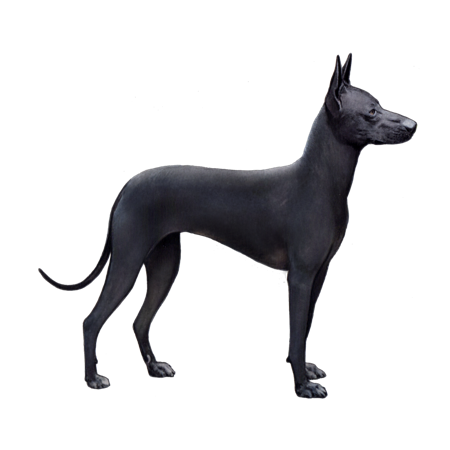
Glen of Imaal Terrier
Hardy, alert, intelligent, feisty, independent... These are just a few of the words that describe the Glen of Imaal Terrier. Compared to most terriers, this breed is less excitable, but still confident, energetic, and ready for hard work. On top of all that, the Glen of Imaal Terrier makes an affectionate, loyal family dog, to boot.
Interested in discovering if your dog is a Glen of Imaal Terrier?
Check out Wisdom Panel's DNA tests.

Glen of Imaal Terrier Traits
General Appearance
The Glen of Imaal Terrier is a scruffy yet cute dog that sports a solid, rectangular body and very short legs.
Coat and Coloring
The Glen of Imaal Terrier has a medium-length, harsh coat that comes in a range of colors. It can be shades of wheaten (sandy to red wheaten), blue (gray), or brindle (shades of gray with tan or other color stripes).
Distinctive Physical Traits
Notable traits of the Glen are its broad head with ears that fold over, bowed front legs, and harsh, wiry coat.
Glen of Imaal Terrier Temperament
The Glen of Imaal Terrier is an intelligent, high-spirited breed. These calm, gentle dogs are loyal and affectionate toward their families. They don't do well left alone for long periods. Glens want to be a part of all family fun—not left alone in the backyard.
Glens are playful, amusing to watch, and good with children. But they can be unpredictable with other pets and might not get along well with other dogs. Compared to other terriers, they don't bark much.
Behaviors to watch out for are chasing wildlife and digging. Because of their working dog backgrounds, Glen of Imaal Terriers can be challenging to distract once they're engaged in an activity.


Glen of Imaal Terrier History
The Glen of Imaal Terrier originated in County Wicklow, Ireland in the 1600s. Around this time, Queen Elizabeth bequeathed land in Wicklow to Flemish and Lowland soldiers who helped defeat an Irish rebellion.
These soldiers brought Flemish hounds with them when they settled in the new territory. Experts theorize these Flemish dogs then bred with local hounds and terriers, yielding the Glen of Imaal Terrier. Wicklow's mountainous terrain—where the dogs hunted fox and baited badgers— allowed the breed to develop and evolve separately from the standard Irish Terrier.
Interestingly, Glen of Imaal Terriers sometimes worked in kitchens. They ran in hamster-wheel contraptions that turned meat over an open fire. This job earned the breed the nickname "Turnspit Dogs."
The breed almost died out before being revived in the early 20th century by breeders in its homeland. Glen of Imaal Terriers received full recognition by the Irish Kennel Club in 1934 and the Kennel Club of England in 1975.
Glen of Imaal Terrier Care
Nutrition
Glen of Imaal Terriers require a high-quality dog food that is age-appropriate. Be sure to monitor the amount of food you give your Glen and reduce the portions if they gain weight. Also, remember that giving too many treats in addition to regular meals can contribute to obesity.
Grooming
This breed needs moderate weekly brushing to prevent the soft hair around the ears, neck, legs, and belly from matting. The Glen of Imaal Terrier's coat also requires stripping two or three times a year. Do both of these things, and your pup will shed very little as a result.
To round out the grooming routine, trim your Glen's nails regularly and check ears weekly for debris or excess wax buildup.
Exercise
The Glen of Imaal Terrier needs a fair amount of moderate exercise. They love spending time with the family, so consider taking a walk together or having playtime in the backyard. Glens also like participating in dog sports—such as earthdog trials, agility, tracking, and obedience.
Training
Early socialization and puppy training classes will help Glens grow into well-mannered, well-adjusted adult dogs.

Breed Group
Terrier
The Terrier Group ancestors were bred to hunt and kill vermin. They are often characterized as feisty and energetic dogs whose sizes range from fairly small to much larger.
Resources
https://www.akc.org/dog-breeds/glen-of-imaal-terrier/
Reviewed July 26, 2020 by Laura Inman, DVM





















































